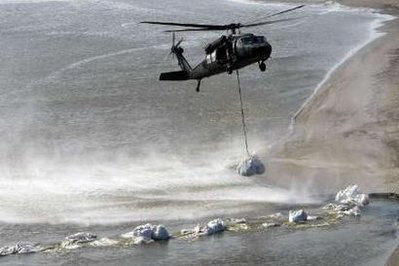Asia-Pacific
Execs grilled on oil spill 'cascade of failures'
(Agencies)
Updated: 2010-05-12 10:34
 |
Large Medium Small |
|
|
"Let me be really clear," Lamar McKay, chairman of BP America, told the hearing. "Liability, blame, fault -- put it over here." He said: "Our obligation is to deal with the spill, clean it up and make sure the impacts of that spill are compensated, and we're going to do that."
By "over here," McKay meant the witness table at which BP, Transocean and Halliburton executives sat shoulder to shoulder. And despite his acknowledgment of responsibility, each company defended its own operations and raised questions about its partners in the project gone awry.
Lawmakers compared the calamity to some of history's most notorious mishaps from sea to space in the first congressional inquiry into the April 20 explosion and so-far unstoppable spill. In the crowded hearing room, eight young activists sat in quiet protest, with black T-shirts saying, "Energy Shouldn't Cost Lives." Several wore black painted spots near their eyes to symbolize tear drops made from oil.
Said Sen. Jeff Bingaman, D-N.M., chairman of the Energy and Natural Resources Committee, "If this is like other catastrophic failures of technological systems in modern history, whether it was the sinking of the Titanic, Three Mile Island, or the loss of the Challenger, we will likely discover that there was a cascade of failures and technical and human and regulatory errors."
The corporate finger pointing prompted an admonishment from Republican Sen. Lisa Murkowski of oil-rich Alaska that "we are all in this together" in trying to shut off the oil and find a safer way to exploit vital energy.











